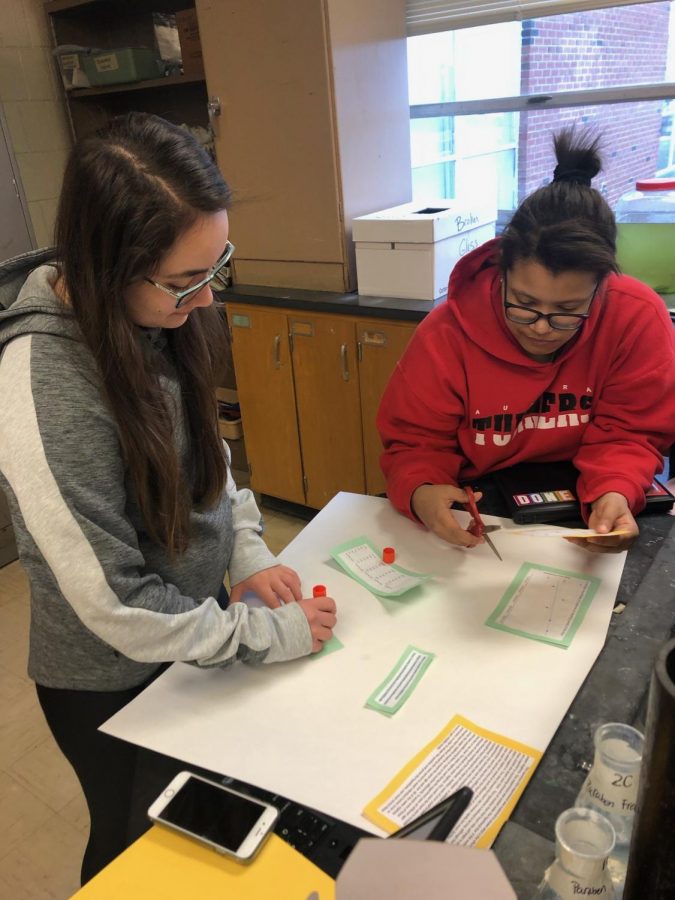Environmental Science studies effects of vaping
Environmental Science students, Abriana Ruiz and Teagan Jordan, gather the results of their study on the effects of vaping into a poster report.
February 21, 2019
Assistant Principal Steve Evans suspended 23 students last year for vaping at school, and it continues to be a problem.
“I think that students are routinely vaping because they’re addicted and in denial,” Evans said.
According to the Illinois Youth Survey School Report in 2018, nearly a quarter (22%) of U-High seniors responded that they have used e-cigarettes within the last 12 months. Additionally, 6% of those students used it more than once a day in the last 30 days.
Vaping has proven problematic, especially among high school students. E-liquid, the substance used to fill vapes, contains many chemicals and excessive amounts of nicotine which have addictive properties.
Environmental Science teacher, Maggy Proctor, wants students to see the importance in what they are learning about. She used recent student trends, including issues with vaping, to shape her lessons.
“I always feel like I try to bring world problems into the labs,” Proctor said. “The key is how much people care about the topic.”
In an experiment last week, juniors and seniors tested the effects of nicotine on the heart rate of daphnia, a common water flea. Students created different amounts of nicotine concentrations in a solution. Students placed a small drop of 10%, 25%, 50%, and 100% nicotine concentration on the daphnia. Through a microscope, students determined the heart rate.
Senior Riley Gillibrand said this project helped her to develop her understanding of a good science experiment.
“It was helpful learning how to do a science experiment since I haven’t done one for a while,” Gillibrand said.
Senior Gavin Landess said the experiment helped him understand the effects of nicotine.
“I realized nicotine is a stimulant and depressant,” Landess said, “and I could see its effects on the heartbeat.”
Students developed a research poster to display their discoveries. The results were clear: as more nicotine concentration was added, the heart rate of daphnia increased. These results can be directly correlated to humans.
Proctor is teaching real problems involved in school and around the world.
“All labs have a connection,” Proctor said, “it’s just how real are they for students.”
Ultimately, students are the ones who must care about what they are putting into their body.
“Unfortunately, I still have to discipline kids about vaping,” Evans said, “and that shouldn’t happen.”
